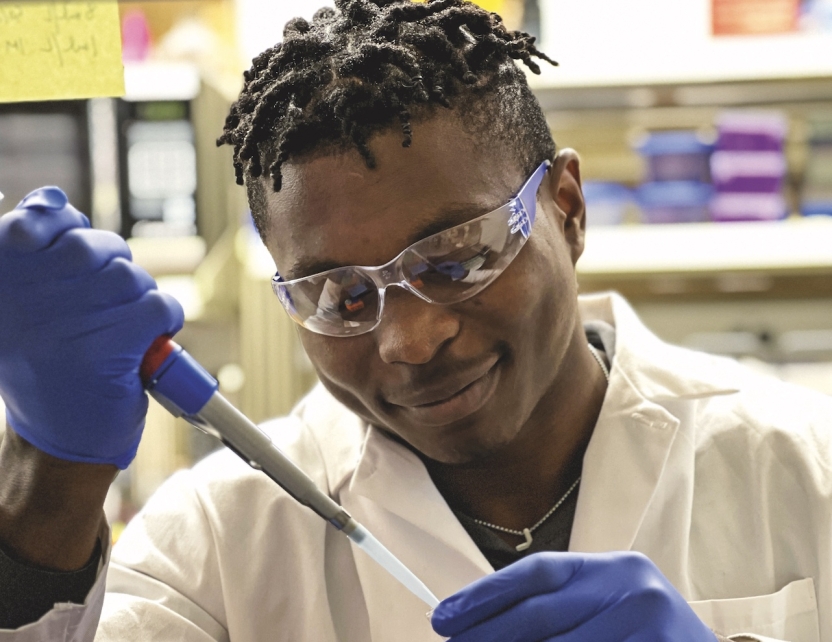Digging Deep into Research and Neural Engineering
College/University Partners, Current Scholars, Education & Research, Health & Medicine, Interview/Profile

In his first year at the University of Florida, Melvin Osei Opoku ’26 (Ghana, UWC-USA) was selected by UF as an Emerging Scholar By his second semester, in Professor Jeffrey Rudolf’s chemistry lab, he was investigating how certain bacteria can produce organic chemicals called terpenoids
“Most terpenoids are derived from plants, just a fraction from bacteria,” Melvin explains “My research focused on functionally characterizing predicted terpene synthases (TSs) and the terpene products they make. The characterization of bacterial TSs will advance the fields of natural products, terpene enzymology, and terpene utilization.”
With a scholarship from the American Society of Pharmacognosy, Melvin continued his research last summer, after which he presented his findings at the society’s annual conference and via an ASP webinar. In the fall, he joined Prof Aysegul Gunduz’s Brain Mapping Laboratory, “determined to align my research and career aspirations in neural engineering.
“Patients with Tourette syndrome get brain-computer interfaces (brain chips) surgically implanted,” Melvin said. “My work is to analyze the brain signals and create an algorithm to automatically detect when the patient is about to experience a tic. Results from my research can help prevent motor and vocal tics in patients.”
He served this year as director of international student affairs with UF Student Government — and he was the only student of color and international student chosen as a Fellow of UF’s Hamilton Society, which promotes deep learning about the Western intellectual tradition.
“I am proud to represent my country and the entire international community during our meetings,” Melvin noted. “I offer a unique perspective.”
This profile is part of the “Undergraduates in Action” series from the 2024 Annual Report.

